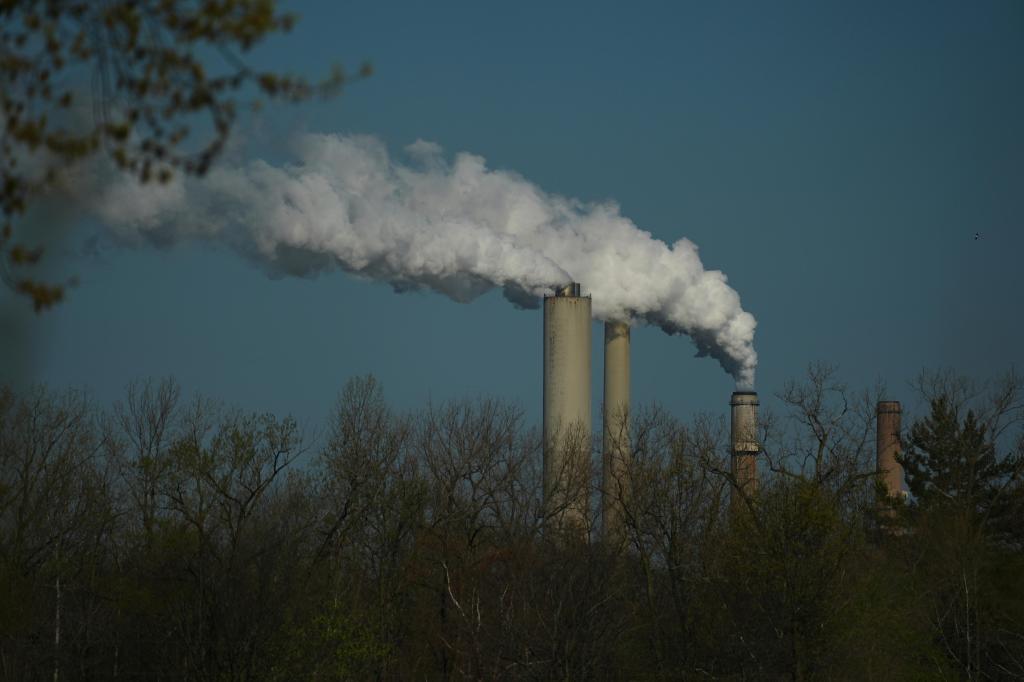Two weeks ago — in my August 9 column — I shared Trump Administration plans for “the largest deregulatory action in the history of the United States.” Environmental Protection Agency Administrator Lee Zeldin announced the proposal on July 29.
Zeldin shared plans to revoke the landmark 2009 “endangerment finding” that authorizes the EPA to regulate greenhouse gas (GHG) emissions from sources like power plants, cars and trucks. It has effectively directed the EPA to address planet-warming fossil fuel burning over the past 15+ years in the U.S. Several conservative think tanks and industry groups like the Competitive Enterprise Institute and the Alliance of Automobile Manufacturers have opposed it over time. Yet, the “endangerment finding” was a 2007 Supreme Court decision that the EPA has responsibility to set emissions limits and standards on air pollution — including GHGs. Of note, the 2007 decision was a 5-4 ruling, and one of the dissenting justices was Chief Justice John Roberts.
Two weeks ago, I shared this link to an open public comment period where you can submit your views. The comment period has been extended to September 22.
On the same day as the Zeldin EPA proposal release, U.S. Department of Energy (DOE) Secretary Chris Wright published a taxpayer-funded report called “A Critical Review of Impacts of Greenhouse Gas Emissions on the U.S. Climate.” This DOE report called into question several key climate science topics that have been settled, and cast uncertainty on a range of other well-researched issues about our understanding of the causes and consequences of climate change. In the weeks since that release, there has been significant renunciation from many across the climate science and policy community. Statements from well-respected scholars, researchers and practitioners have pointed out that this report was rushed past an important process of peer review (where experts in relevant research areas evaluate the quality, validity and originality of a peer’s research before it may be published). Many have also noted that findings were rushed, lacked rigor and were “cherry-picked” so that evidence was presented out of context. The DOE report also poorly represented consensus views established across the scientific community and was laden with misdirection.
What is also troubling is that the DOE report feeds misperceptions about established scientific evidence. In other words, the report can deliberately give casual news consumers an impression that there is equivalence between climate research findings from reputable peer-reviewed processes conducted by the United Nations Intergovernmental Panel on Climate Change (IPCC) and U.S. National Climate Assessment (which involves thousands of experts) and the findings of these five co-authors and members of the Trump Administration. This is false equivalency.
In the first Trump administration, in 2017, then-EPA Administrator Scott Pruitt proposed to form an adversarial “red team” to debate and debunk established climate science (seen as a “blue team” perspective). Under the guise of “reform,” this initiative was supported by several right-wing think tanks like the Heritage Foundation (also authors of Project 2025) and the Heartland Institute. The effort sought to elevate outlier views in the public arena and policy decision-making spaces.
Red-team/blue-team approaches have been drawn from the military, where one group (a red team) seeks to challenge another group (a blue team) by posing antagonistic or contrarian arguments. It was seen in military contexts as a useful process to rethink strategies and approaches to complex problems. Yet, its application in this scientific space is problematic.
Among logical pushback over time, the dubious 2017 Pruitt pursuit prompted a lawsuit by the Environmental Defense Fund (EDF) (and the Southern Environmental Law Center). The red team/blue team plans lost momentum when Pruitt resigned in 2018. Now, we can see these ideas revived in an amped up form in this 2025 offensive.
This 2025 Trump Administration, DOE and EPA effort has now propelled EDF (and Union of Concerned Scientists) to file an August 12 lawsuit against Zeldin, Wright, the EPA and DOE for the unlawfully non-transparent and secret formation of the DOE author group as well as their effort to use their misguided assessment to overturn the endangerment finding.
Continue to share your perspectives on these worrisome efforts to dismantle established science and policy progress in the EPA open comment period.
This is a biweekly sustainability and environment column authored by Max Boykoff. Boykoff is a faculty member at the University of Colorado Boulder, though these the views expressed here are based upon his scholarly expertise and research/creative experience as well as personal views and should not be considered the university’s official position on any specific issue. Email: mboykoff@gmail.com.
